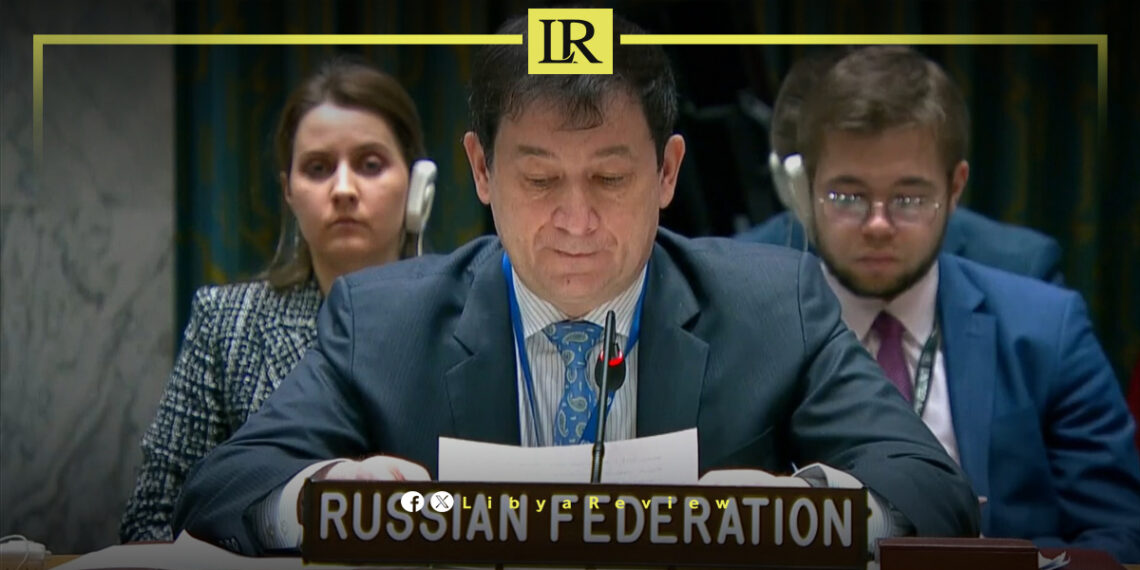Russia’s representative to the United Nations issued a strong warning about growing external interference in Libya, cautioning that such actions could jeopardize both the country’s fragile stability and its financial security.
Addressing the latest United Nations Security Council session, the envoy emphasized that the UN mission should continue operating in Libya while remaining grounded in the country’s real conditions, not on artificial timelines imposed from outside. He argued that forcing deadlines in political, economic, or security matters risks undermining progress and alienating domestic actors.
According to the Russian diplomat, a durable settlement in Libya requires an inclusive political process that allows participation by all parties, without exclusion. He linked this to the UN’s proposed roadmap for Libya, noting that its success depends on ensuring a broad consensus among Libyans themselves rather than solutions dictated by international players.
Moscow also urged the international community to revive mechanisms similar to the Berlin Process, which in earlier years created a platform for coordination among global stakeholders. A renewed approach, he suggested, could prevent fragmented interventions and instead support Libya’s sovereignty and institutional rebuilding.
The envoy reserved particular concern for Libya’s frozen assets held abroad, warning of what he described as attempts by certain external actors to exploit those funds through “illegitimate channels.” Such moves, he said, would not only destabilize Libya’s financial system but also erode international trust in safeguarding sovereign wealth.
He called on the Security Council to adopt clear measures to prevent misuse or unlawful access to Libya’s financial reserves, stressing that these assets must remain intact for the benefit of Libyans.


